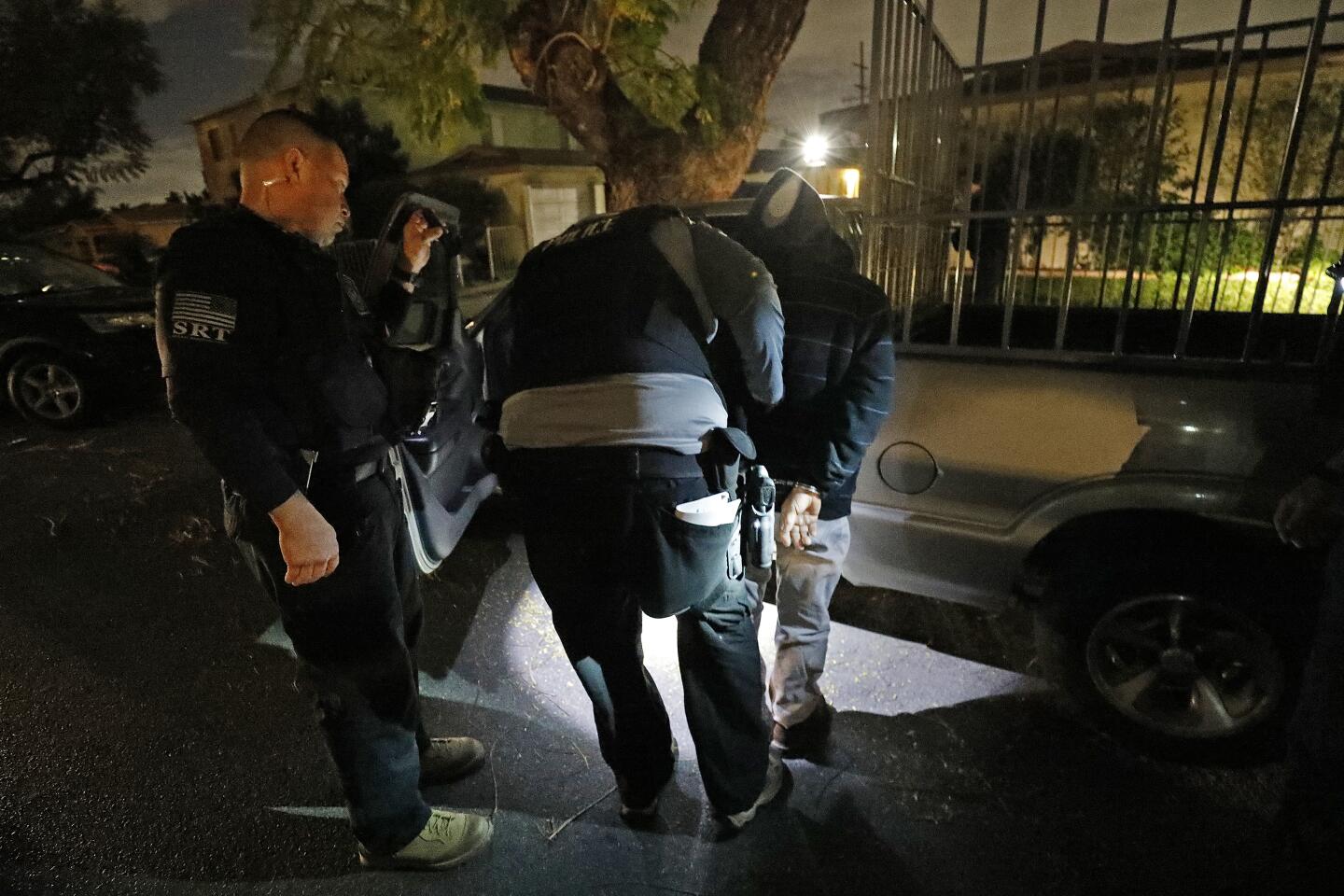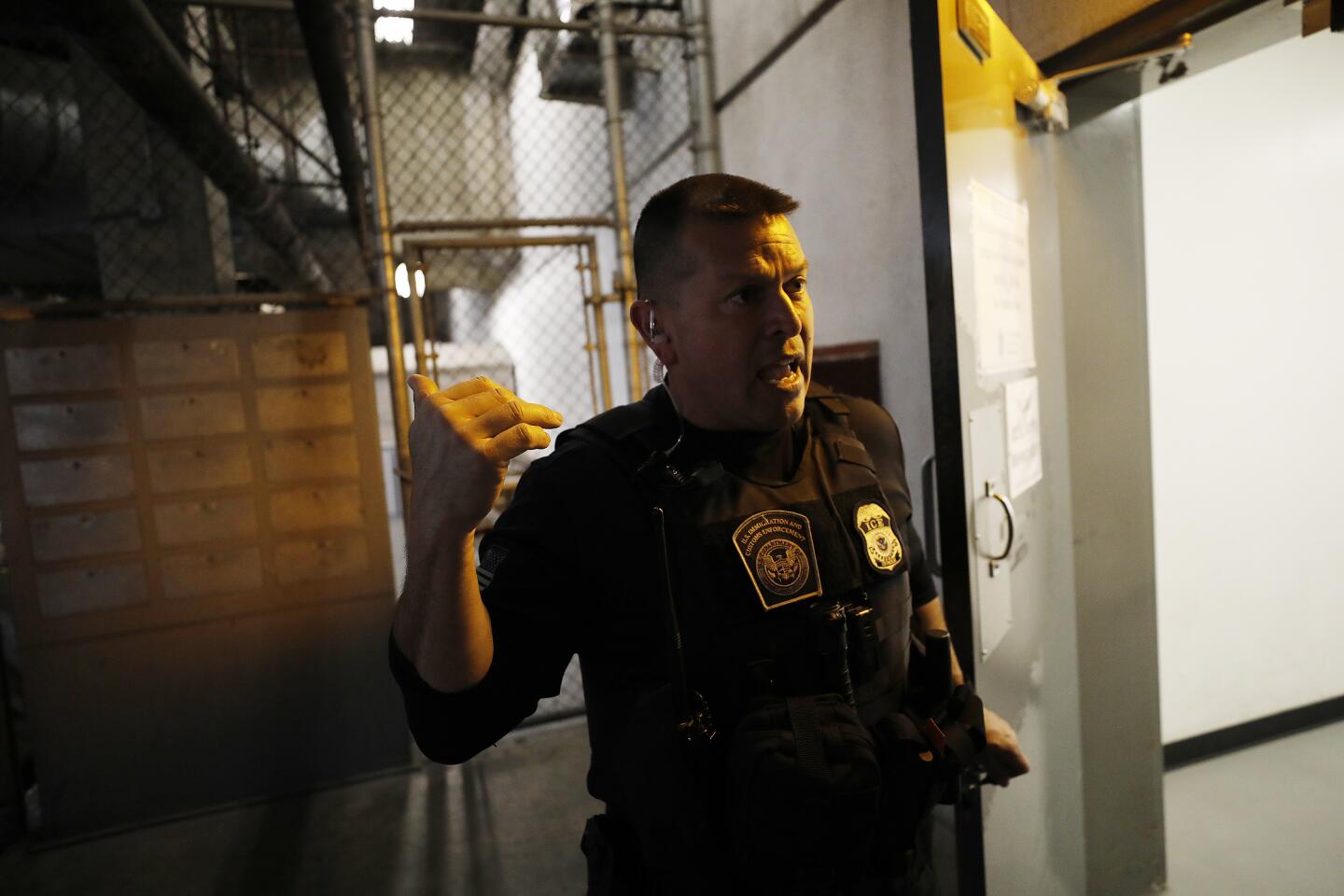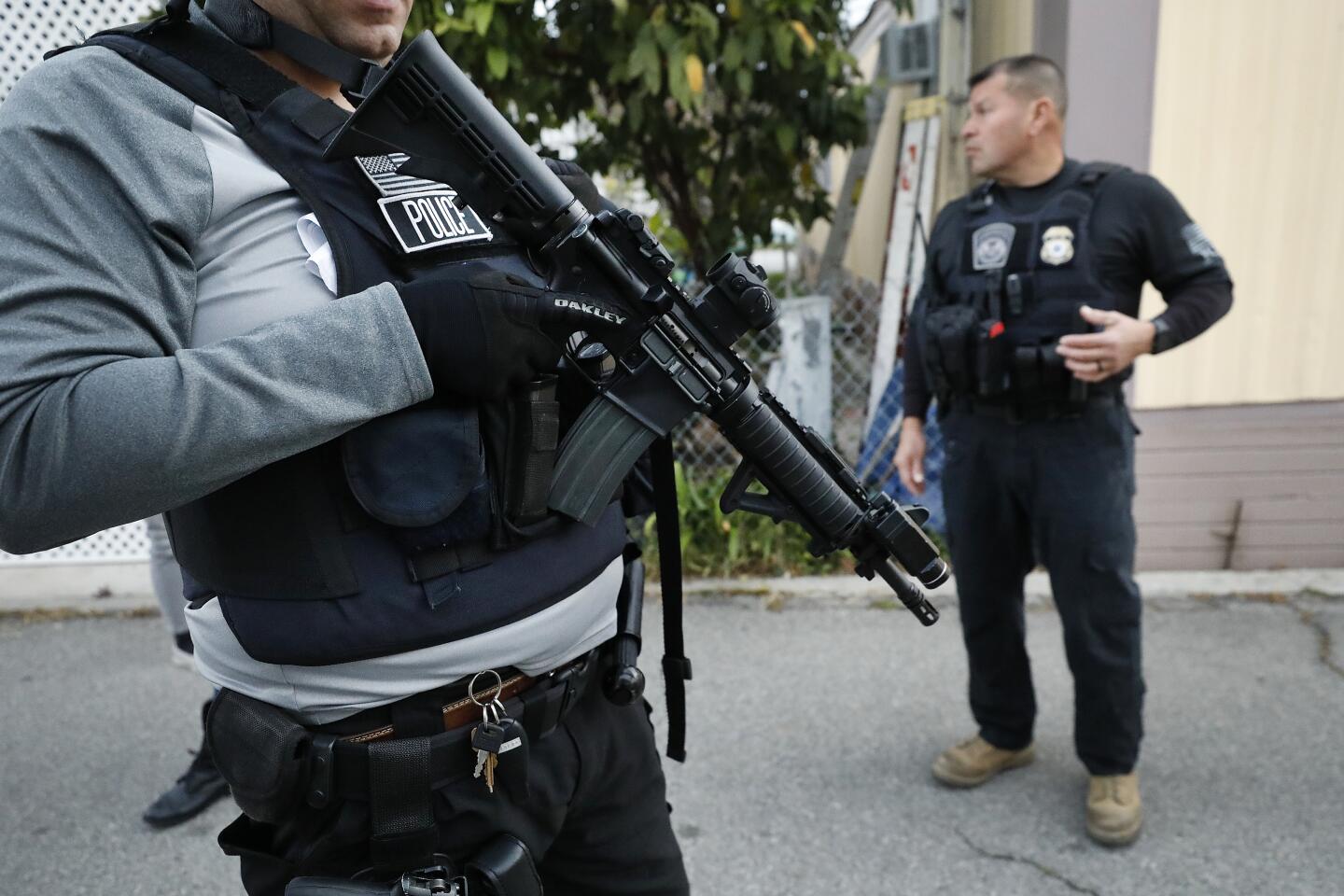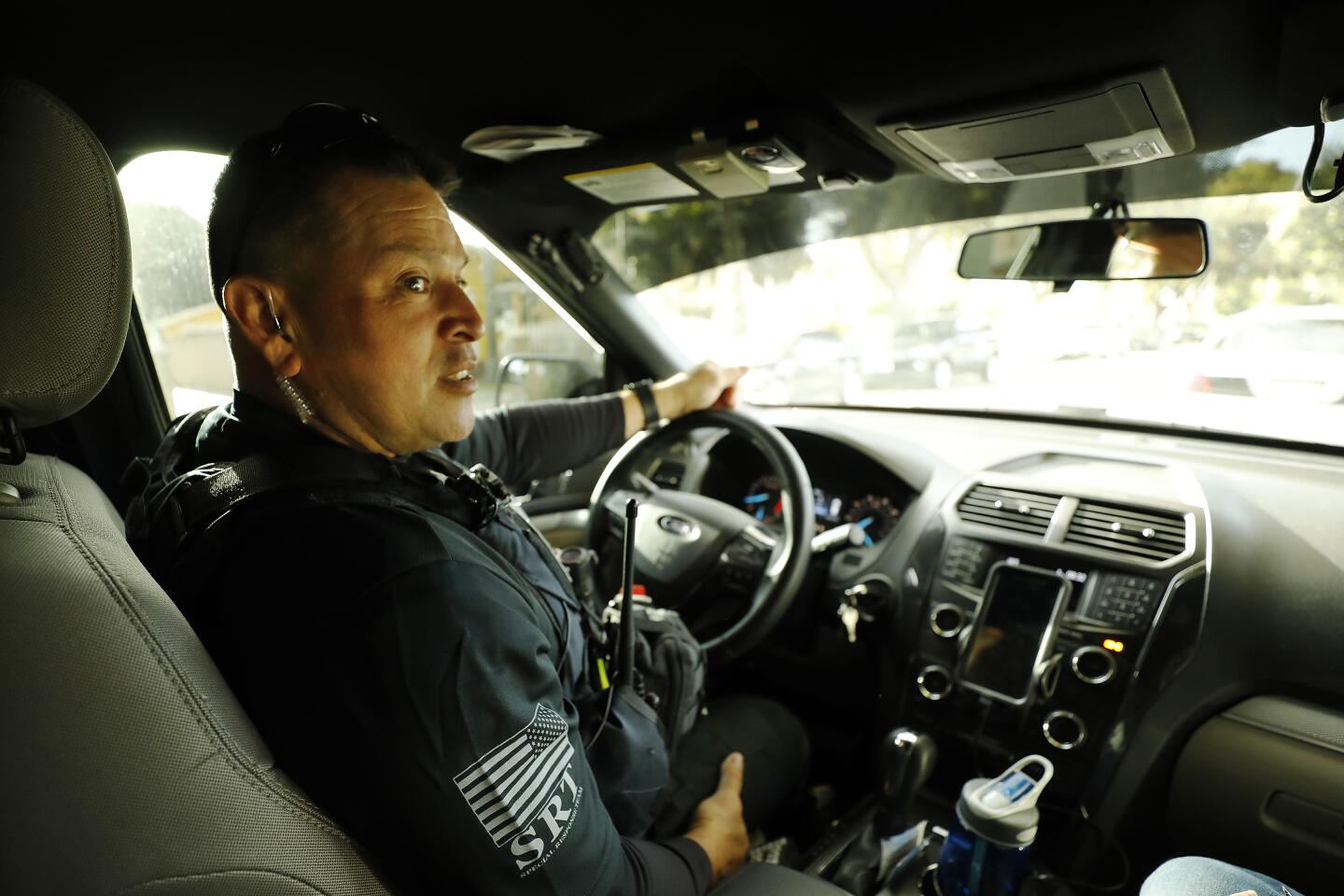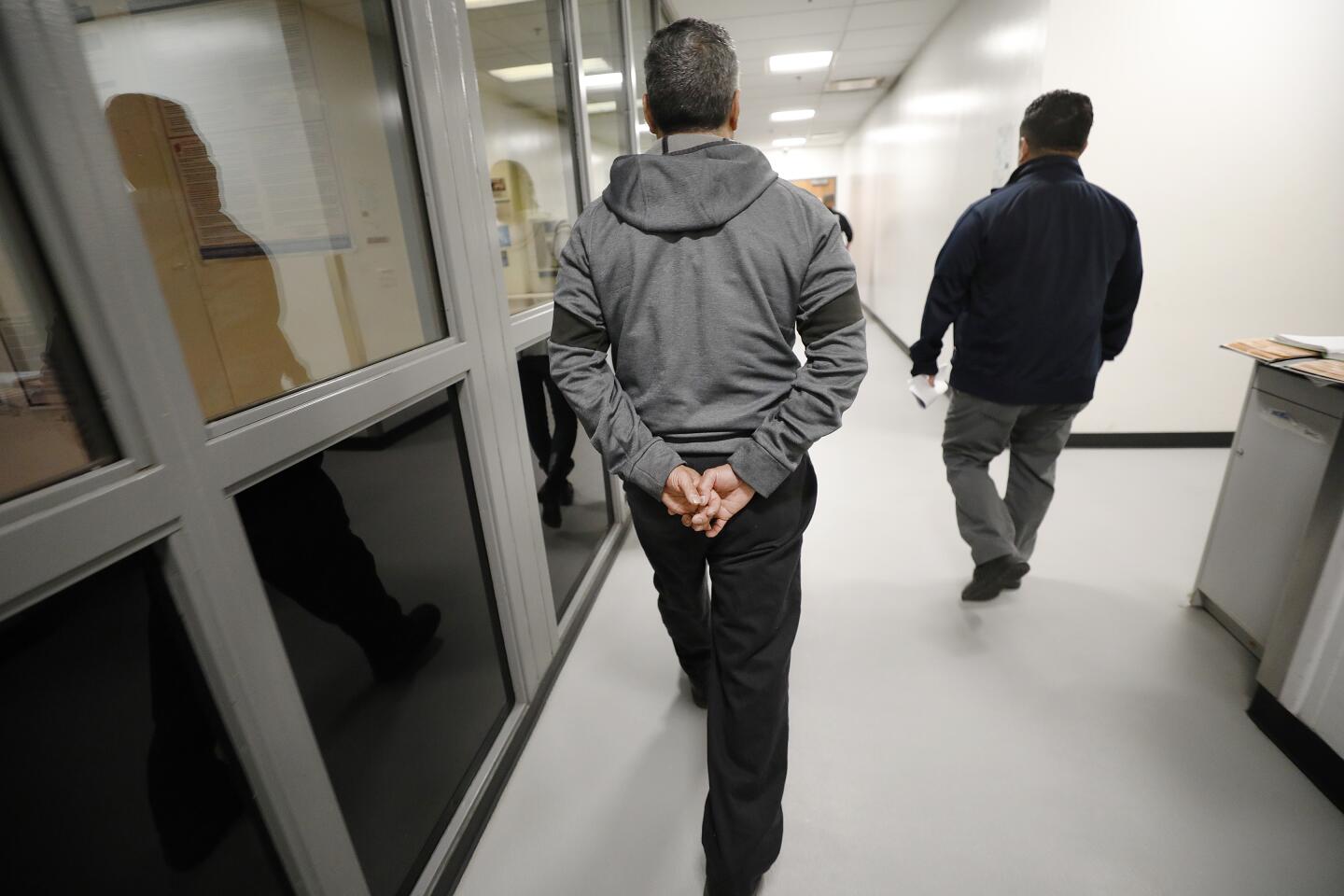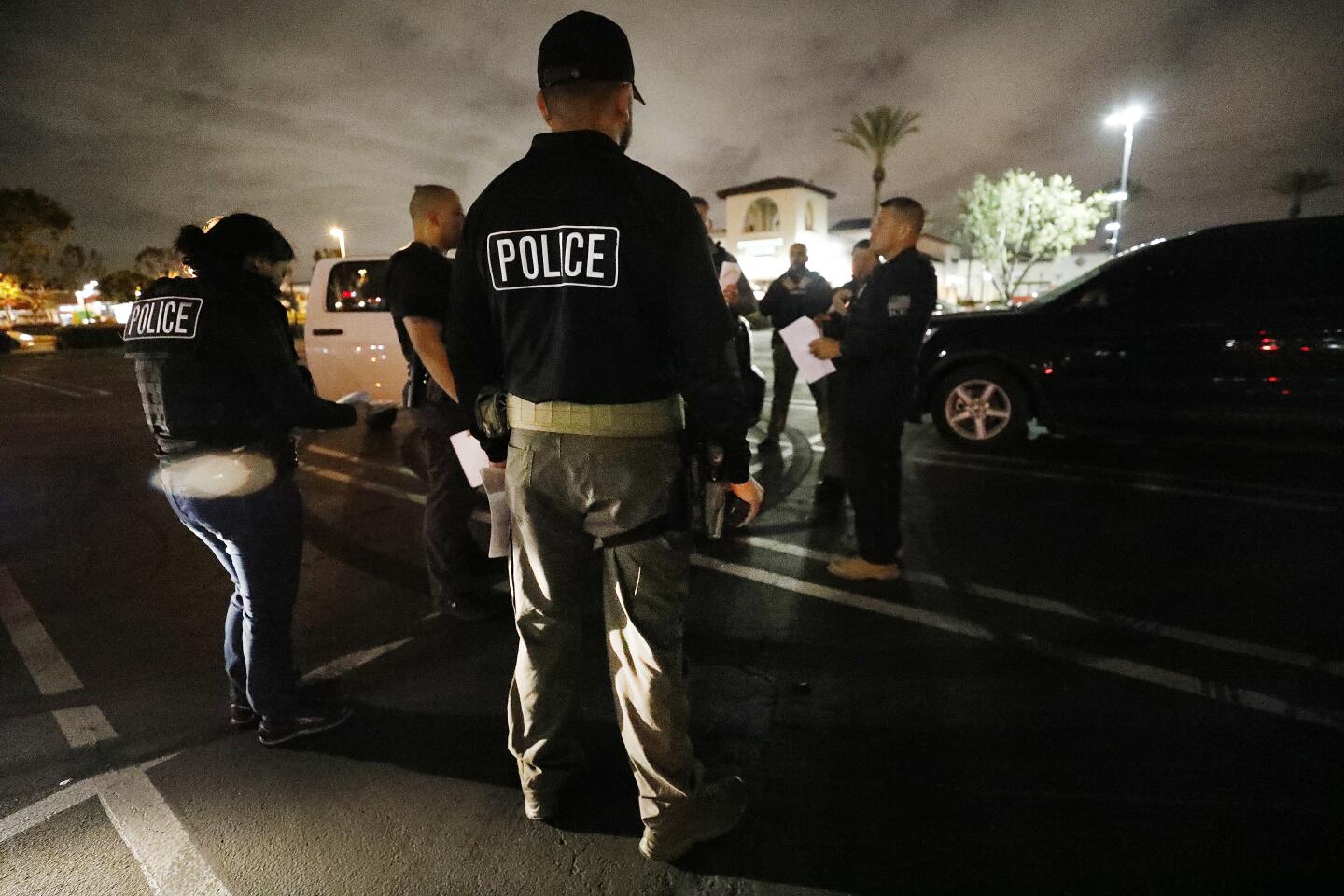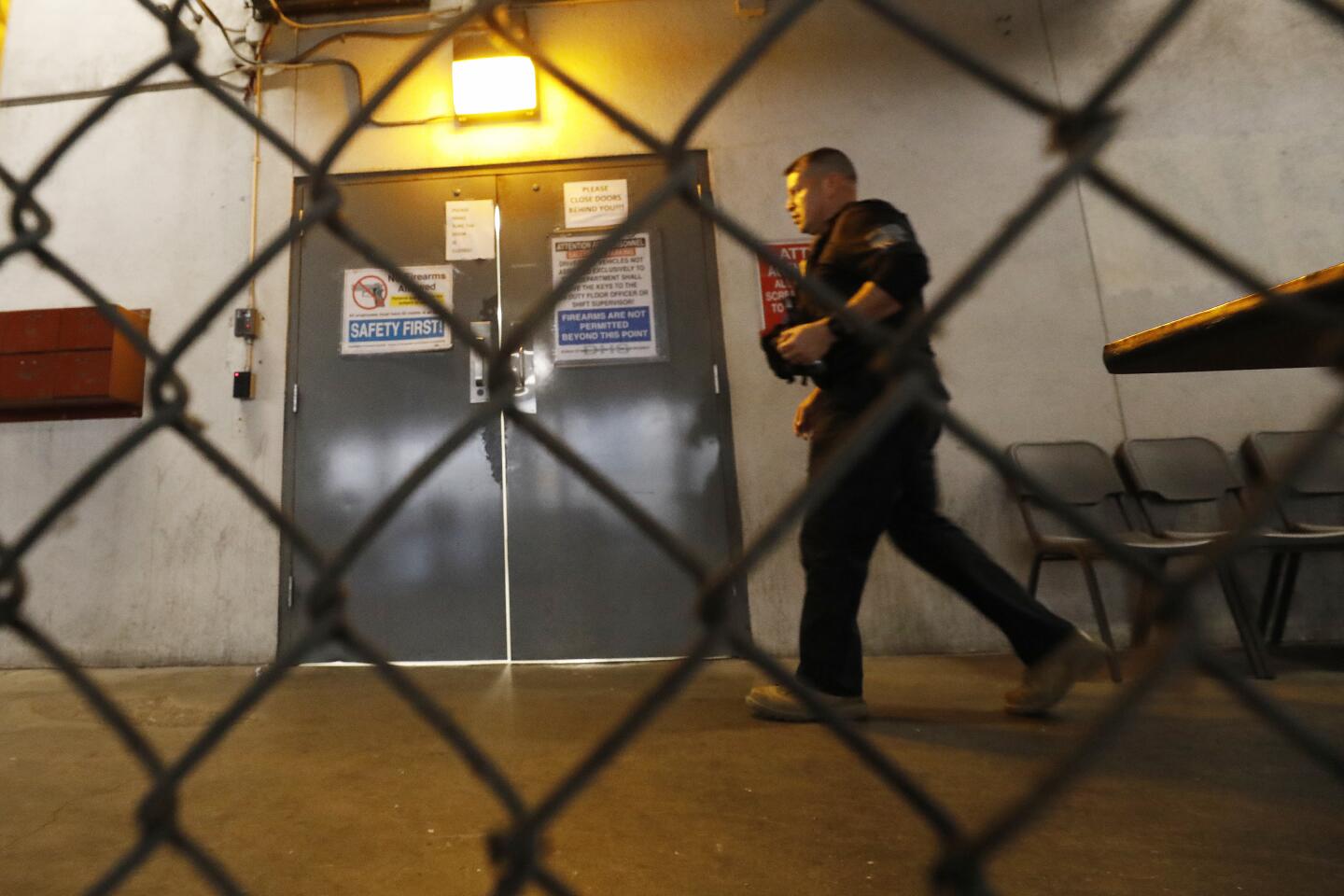- Share via
In the darkness of the early hours Monday, about a dozen immigration agents gathered outside a Starbucks in Bell Gardens.
For the Immigration and Customs Enforcement officers, who make daily arrests, it was supposed to be business as usual.
But that morning, they greeted one another with elbows instead of handshakes; the Starbucks where they rendezvoused was only grab and go; and they passed freeway signs that read: “Wash your hands stay healthy avoid COVID-19.”
The ICE agents were about to spend the day trying to arrest targets on a most unusual of days: the day after the California governor and L.A. mayor ordered people to ramp up their efforts of social distancing over the coronavirus. The agents had N95 respirator masks in their vehicles, just in case.
With safety measures taken across the state, immigrant advocates have criticized ICE for its continued enforcement operations. More than 45 organizations signed a letter this week calling on the Department of Homeland Security to suspend such actions.
ICE said it would take precautions, given the new reality. But the arrests would go on.
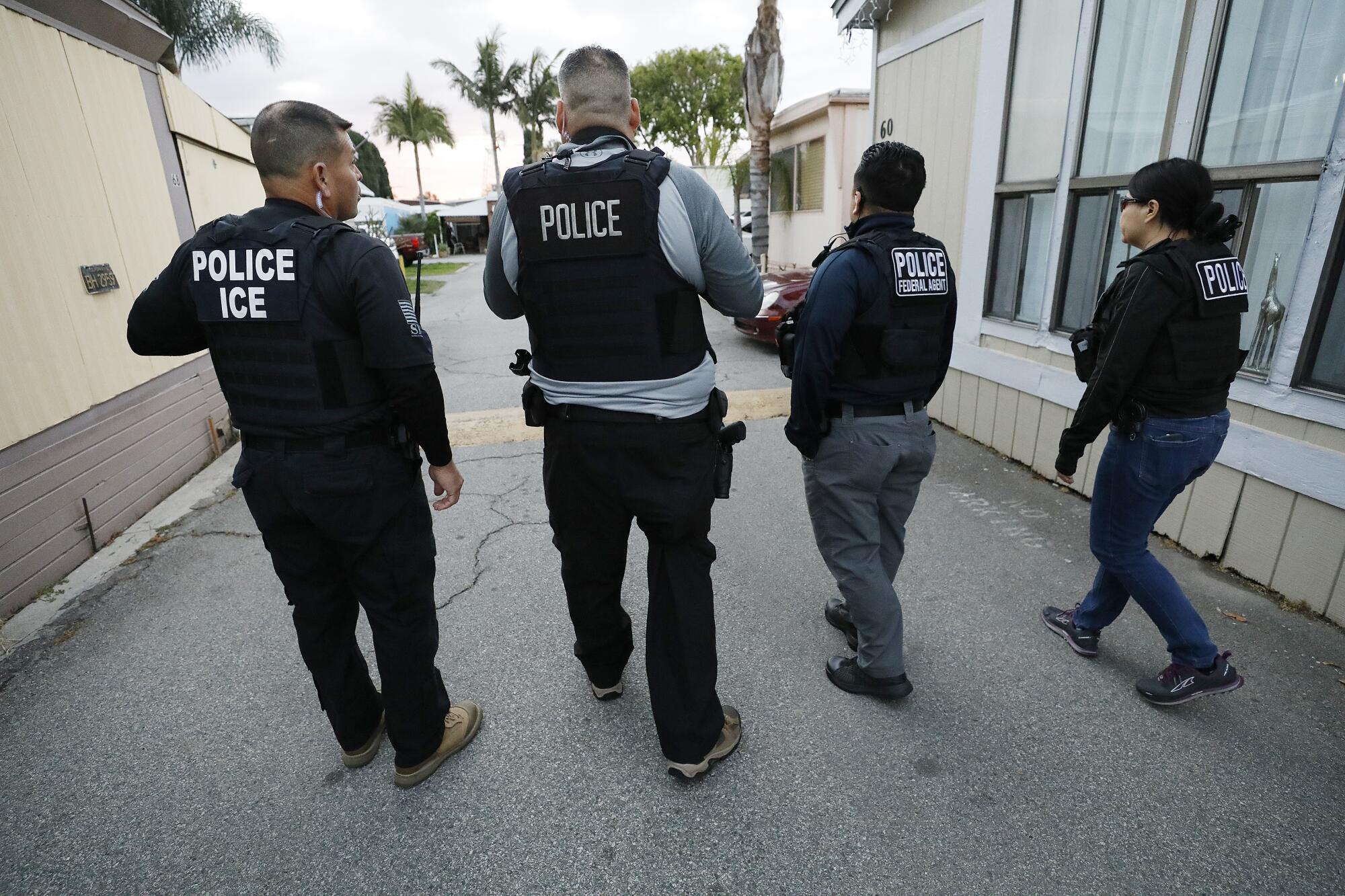
“We’re out here trying to protect the public by getting these criminal aliens off the street and out of our communities,” said David Marin, the director of Enforcement and Removal Operations for ICE in L.A. “Asking us to stop doing that basically gives those criminals another opportunity to maybe commit more crimes, to create more victims.”
In the parking lot, the group of agents stood in a loose circle — not quite six feet apart — as they reviewed the target list. That morning, they were searching for four people, including two registered sex offenders.
Among the gathered officers were two U.S. Customs and Border Protection officers — identifiable only by a patch on their vest with their agency’s name. They were among nine total CBP agents and officers deployed to the L.A. area in the last few weeks to assist ICE in making arrests.
They rattled off the height, weight and daily routines of the people they sought to arrest. Nearly all the targets lived within a one-mile radius. With many schools closed due to coronavirus and some people staying home from work, it was unclear how arrests would go that morning.
“We couldn’t factor this in, right? This COVID-19 and the precautions that everybody’s taking,” Marin said. “We just have to continue to go with the same game plan that we’ve been doing.”
All of the officers had been issued the protective masks over the past few weeks. In his car, Marin kept packets of hand sanitizer wipes, which he’d used that morning to wipe down his steering wheel, his keys and his hands after pumping gas.
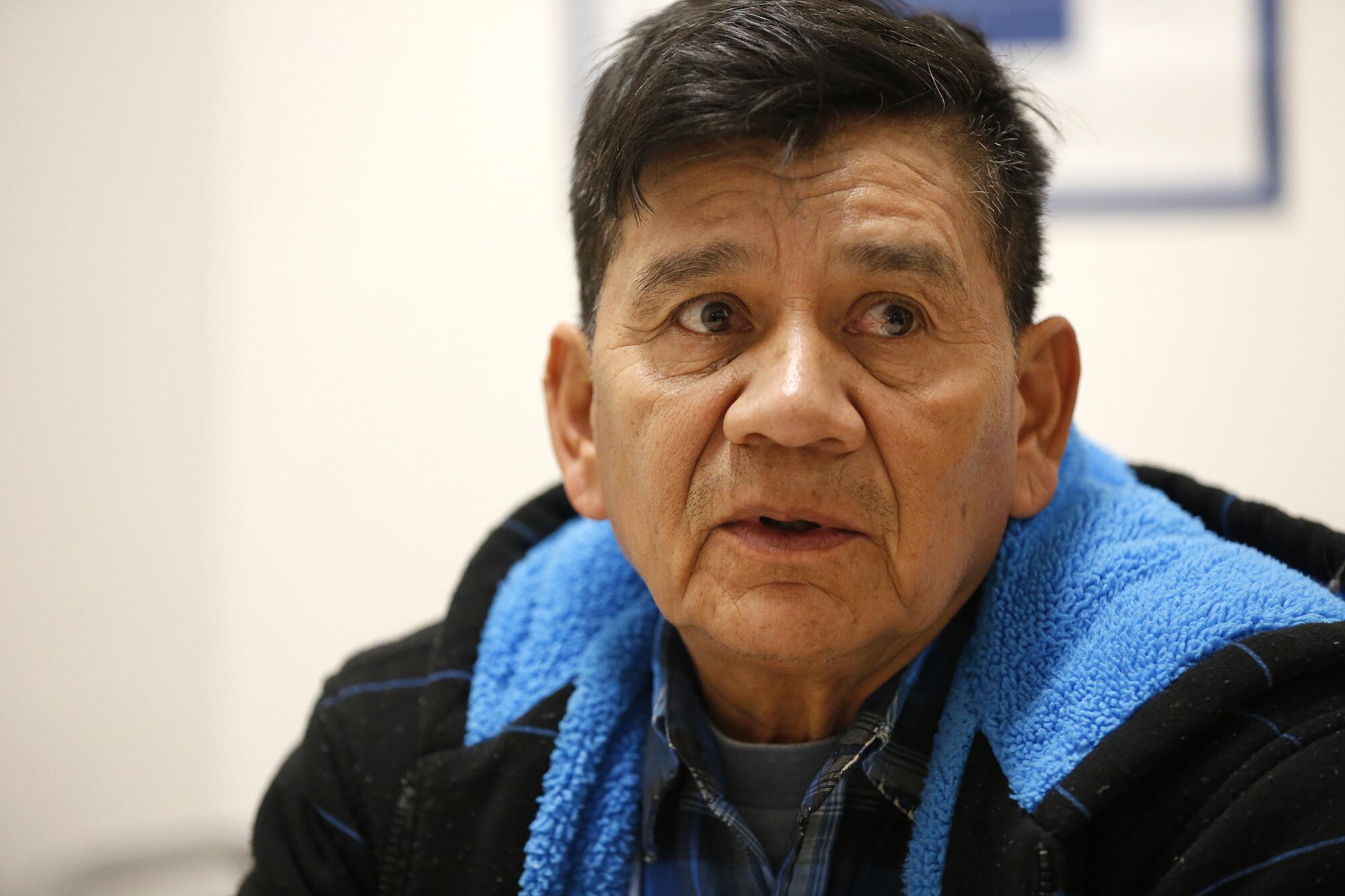
Around 5 a.m., the officers waited outside of Pedro Castillo Bravo’s home. He was convicted in 2015 for DUI causing bodily injury and hit and run.
The officers knew the 56-year-old would soon be heading out to work collecting metal. In less than an hour, they spotted movement in the driveway.
“I can’t tell if it’s the target or not, but they got into the target vehicle,” an officer’s voice crackled over the radio. After Castillo prepared to leave, an officer knocked on his car door.
He asked if Castillo was sick or taking medication, to which he said no. He asked him if he’d been arrested before and Castillo admitted he had. The officer, who wore a pair of black gloves, handcuffed Castillo and placed him in the back of a white Dodge Challenger.
Since the 2015 conviction, Castillo said, he had not driven again drunk. That morning, after work, he planned to visit the grocery store — worried about the lack of food at home and the stores emptying amid panic buying.
“I’m the head of the house,” Castillo said, growing teary eyed. “If they have me here locked up, what about rent and food?”
Shortly after 6 a.m., the officers were at the next home on Lanto Street, where they looked for a man who had been convicted of sexual battery and sentenced to three years’ summary probation. When ICE pulled him over, he told them he had a green card.
His crime, Marin said, made him removable. Officers placed the man in the backseat beside Castillo.
As a few officers took the men to be processed, the rest went to door knock in a nearby mobile home park. They were searching for a man convicted of receiving stolen property and conspiracy to commit a crime. Instead, they encountered his wife and two children, both home from school that day because of closures.
“We’re the only ones here,” the man’s wife told the officer, allowing him to come inside and look around.
After striking out, the agents circled back to Starbucks for coffee and a bathroom break. Inside, staff were not allowing customers to put their own cream or sugar, to help stop the spread of coronavirus. And the bathroom they’d been waiting for was closed to the public — badge or no.
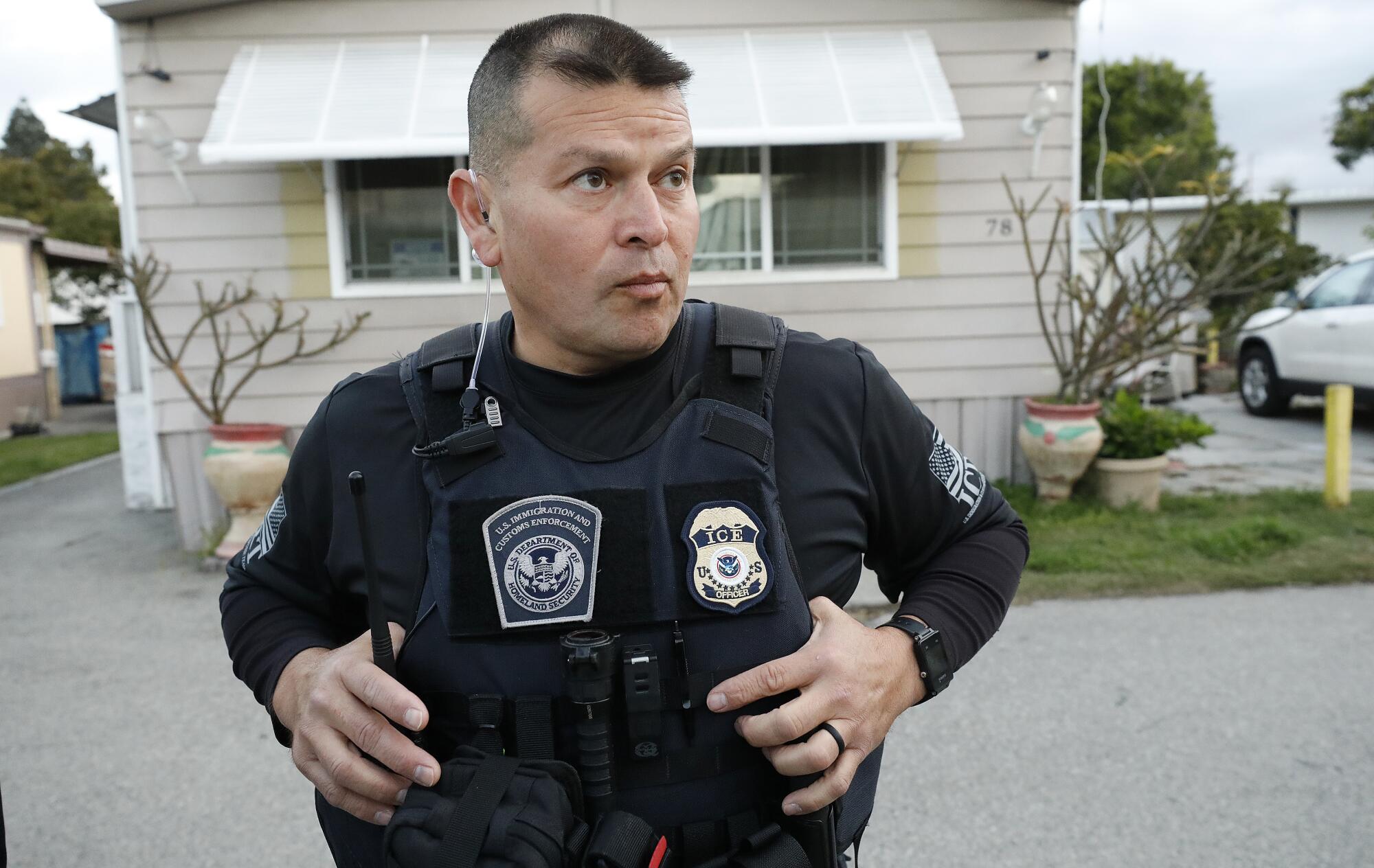
As the officers stood outside, a man approached them to ask if it was “true that the sheriff got the coronavirus?” The officers said no. Throughout the day, they spotted people wearing masks and others with arms full of toilet paper and paper towels.
Coronavirus has had effects across the agency.
In the building where Marin works downtown, officials have talked about limiting contact with the public. On Tuesdays and Thursdays there are 150 people who cram into a waiting room and line up outside against the wall for check-ins with ICE, some of them arriving every 30 days.
“We might have to adjust that and make it 60 or 90 days maybe, to limit their contact,” Marin said “We’ll work on that on a case-by-case basis.”
Homeland Security Investigations, a branch within Immigration and Customs Enforcement, postponed its citizens academy. Advanced classes at the Federal Law Enforcement Training Centers have been canceled. Marin’s meeting with faith-based leaders was canceled.
Over the weekend, Marin sat down with senior leadership to determine which jobs might allow staff to telework. Aside from mission support specialists, that seemed out of the question.
“Our job is not a job that you can telework from,” Marin said. “Processing people or doing check ins with people, that can’t be done via telework.”
Later that morning, officers waited outside the last house on their list that day. They usually saw their target leave his home between 8:45 and 9. But that morning, they waited an hour and a half and never saw him.
“This guy’s late,” Marin said, speculating that he’d changed his pattern “because of coronavirus.”
But the biggest change became clear as Marin drove downtown on the 110 north.
“Where is the traffic?” he asked.
More to Read
Sign up for Essential California
The most important California stories and recommendations in your inbox every morning.
You may occasionally receive promotional content from the Los Angeles Times.
